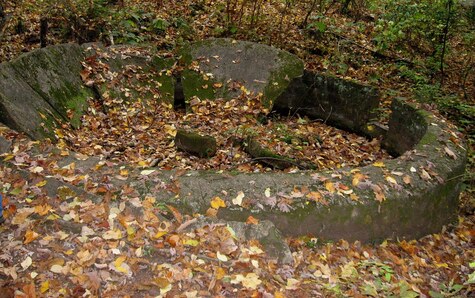all of the selves we Have ever been
 In the midst of a pandemic that feels endless, already there is talk of the next crisis--water. Knowledgeable people are banking on it, trading water on the commodities exchange. News footage validates the forecast with images of dry river beds, massive wildfires, and places where critical ground water has been pumped beyond its limits to replenish. Waterways are polluted by industrial toxins, discarded plastics, and human waste. Around the world, people are on the move leaving behind land that is turning to dust. I sit here in my uneasy chair for some self-examination. I have taken the supply of water for granted my entire life. I turn on the tap and out flows cool, clean water. As a teenager living in the growing suburbs of Pittsburgh, I became familiar with families living outside the city limits whose homes had wells. Sometimes I visited them in the summer when the water was low and laundry had to be hauled to the laundromat, and the grass turned brown, and showers were limited to keep the wells from running dry. It all seemed so primitive to me from my perch in the privileged suburbs where the sprinkler ran for hours. In my mind’s eye, wells belonged in the old American west, to a world of gunslingers and dusty cattle drives, in barren places depicted on shows like Rawhide and Gunsmoke, a world of black and white, certainly not living color. Earlier experience had led me to this faulty conclusion. There were two giant concrete discs in my grandmother’s grassy backyard. It was only in fleeting moments of bravery that I dared to run across one of the discs. More often, I walked around them fearing that something dangerous lurked beneath and was just waiting to grab me by the ankles. Perhaps it was our happy lives above ground that skirted trouble from below. Above the ground life was vibrant. Children laughed while grabbing juicy pears from the tree overhanging the porch. Aproned women snipped dewy roses from thorny bushes that climbed white trellises along the back wall. Damp clothes hung shoulder-to-shoulder on the clotheslines, shooing away danger as they blew and snapped in the swift summer breeze. Screen doors slammed as we ran in and out of the house. Familiar voices filled the air like music. Somewhere along the way, I learned that the concrete discs in my grandmother’s yard were lids. They covered the cisterns that once upon a time collected rainwater to support life and clean laundry inside my grandmother’s house. I was dumbfounded. I never imagined that the ultra-modern home of my grandmother had a frontier history. How could that be when every modern innovation in the world was introduced to me there: wall-to-wall carpeting, automatic dishwashers, recliner chairs, color TV, and air conditioning? Clearly, gathering rain water was ancient history. Problem solved. We were modern taps and pipes people who relied upon the city water department to do the heavy lifting and keep the river of water flowing into our home. The magical innovations that appeared inside my grandmother’s house were not only evidence of a changing infrastructure, but evidence of a changing thirst, and we, like many Americans, became insatiable. We wanted more of the new, the time-saving, and the convenient. The economy was booming in the post-war era and so were the number of babies. Life had been hard. Now it was good. It was easy to believe that the frontier days of wells and cisterns were a thing of the past. We never imagined that water itself would disappear in our quest to make life not just easier, but effortless. We grew up as descendants of the American frontier and were fortunate to bring our children into a world of abundance and convenience, but our children face life on a new frontier, the frontier of climate change. Will their lives be better or more difficult than ours? As I downsize, focusing on what to keep and what to leave behind for my children, I look at my stuff and realize that I have never owned anything more precious than water. If I could do it all again, I would trade automatic dishwashers and color TVs for the life that existed in my grandmother’s backyard. I would buy insurance so that my children would be sure to know the cool, soft pleasure of moist green grass between their toes, the sweet flavor of pear juice trickling down their chins, the musky fragrance of velvety roses tickling their noses, and the sound of damp, clean clothes snapping in the breeze shooing away danger. I would have lifted those lids and saved for my children an inheritance that is the birthright of all children, the life-giving, thirst-quenching miracle that is water.
0 Comments
Your comment will be posted after it is approved.
Leave a Reply. |
AuthorLilli-ann Buffin Archives
July 2024
Categories
All
|
 RSS Feed
RSS Feed